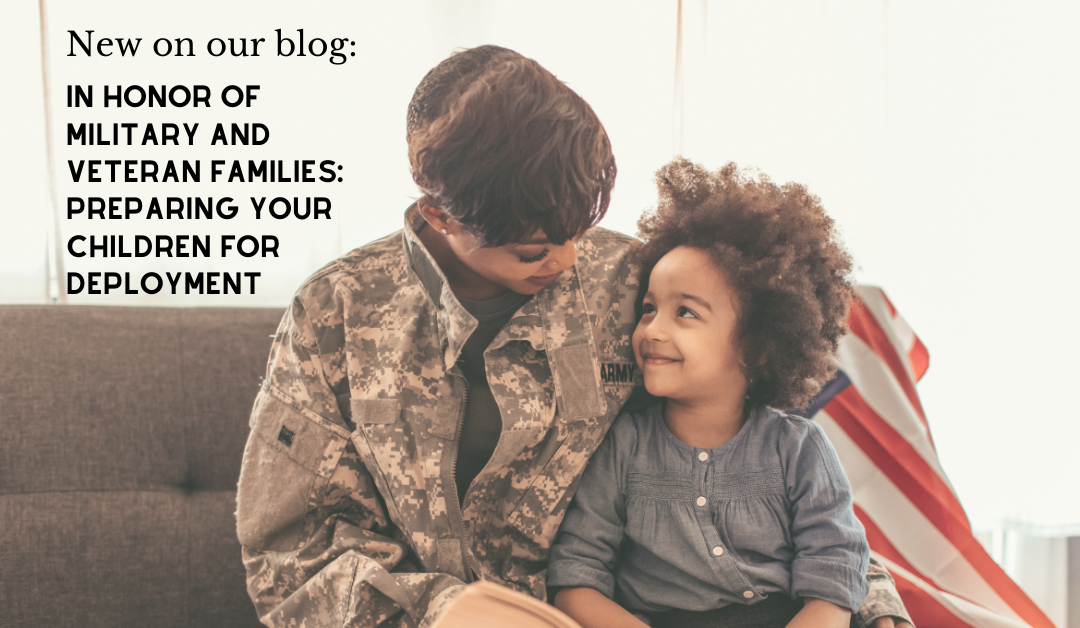
by Sara Hart | Nov 10, 2020 | Blog
While preparing for deployment, many families tend to focus on the logistics, finances and preparations – which are all valid tasks to complete. However, it’s equally important to remember that your children will need mental and emotional support and guidance throughout your deployment. Routines will be altered, quality time with family will look different and many changes will occur. As we honor military families this Veteran’s Day, we offer advice on how to prepare for the deployment cycle.
Pre-deployment
It’s important to invest ample time and effort into your pre-deployment plans, as they will help set guidelines while one parent is away. First, prepare yourself for the emotions and questions your children may have. Speak to other parents who have experienced similar situations and ask for advice on how to go about these situations. Also, discuss with your partner the best possible way to explain deployment to your children, especially if they’re younger. While your children may have fears for the upcoming changes, remember that open communication is a great way to express and process concerns, emotions and plans. Speak with them about their emotions; share plans for regular communication; and discuss changes that may occur.
While deployed
For the …
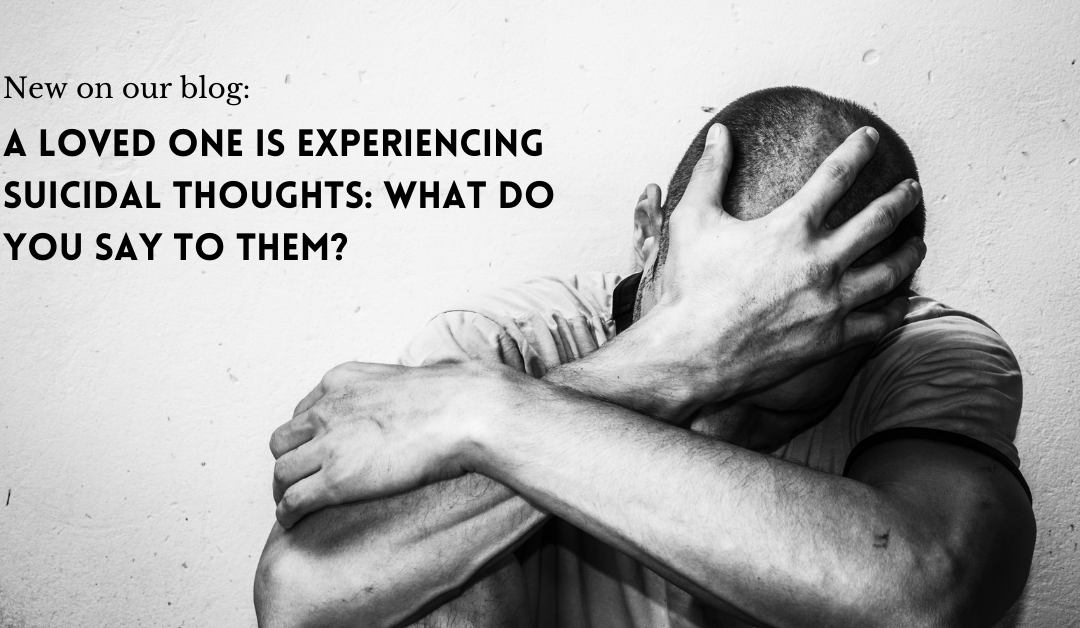
by Sara Hart | Sep 11, 2020 | Blog
When someone you know exhibits suicidal behavior, it can be difficult to know what to say – talking about it openly or intervening can feel as if you’re making matters worse. However, there are steps you can take to help those you love overcome difficult times. As we recognize Suicide Prevention Month, we’ve outlined a few ways you can help and support those experiencing suicidal thoughts below.
Understand where their pain is coming from.
Sometimes, those who think about suicide don’t want to end their life – they want to find a way to escape the repeating cycle of their pain and distress. Tunnel vision on hopelessness and lack of alternatives can drive people to feel the only way to escape it is by ending their life. Also, guilt can make them feel as if they’re a burden to those around them. Let it be known that you want to understand where these feelings are stemming from, and you will stand by them as they find alternative ways to overcome those emotions.
Recognize that social perfectionism and societal expectations have a hand in suicidal thoughts.
We feel the pressures of societal standards every day. These can weigh heavily on us, as …
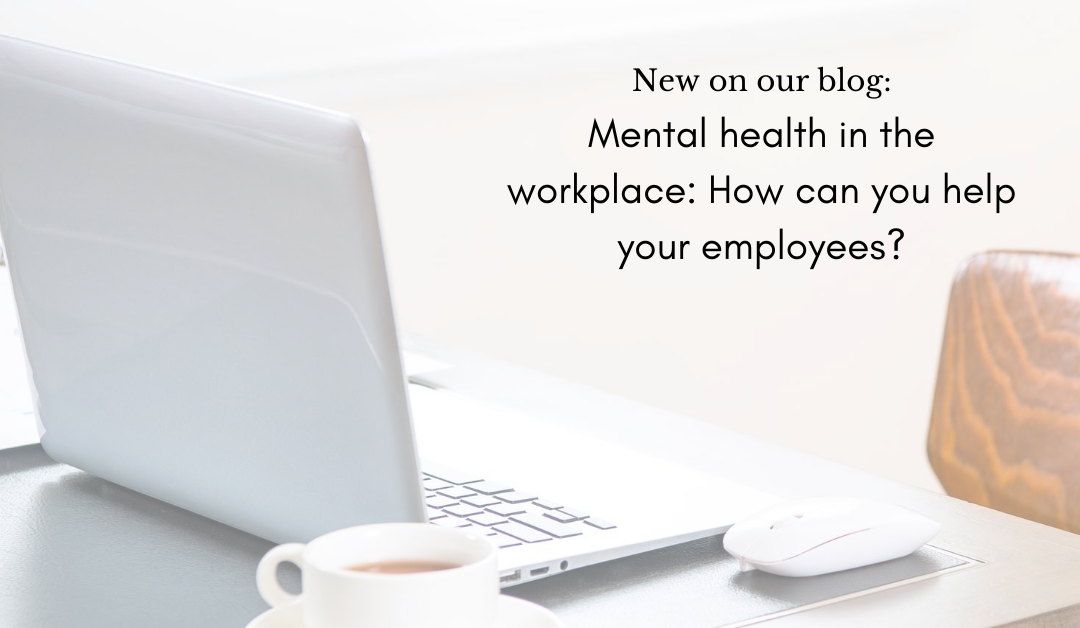
by Sara Hart | Aug 28, 2020 | Blog
The COVID-19 pandemic – along with ongoing racial injustice unrest and an economic roller coaster – has put our nation in a state of uncertainty, giving anxiety and depression an opportunity to blossom. In a recent study by Qualtrics, 42% of those surveyed said their mental health has declined since the pandemic began. There is no better time than the present to prioritize mental health in the workplace, as mental well-being among employees should be a top priority within the ranks of company leadership. We provide a few tips on how to prioritize your employees’ mental health below.
Communication is key.
It’s important to communicate often and explicitly with your employees. Over-communication is actually encouraged when it comes to expectations and updates, as this will provide reassurance and direction to your team in their time of need. Also, be open and honest with your team during this time. Sharing your experiences and normalizing mental health challenges forms a connection with your employees. New stressors are arising in each of us, so it’s important that those in influential positions show vulnerability and promote support. This authentic approach establishes trust and can improve overall employee performance and engagement with leadership.
Check …
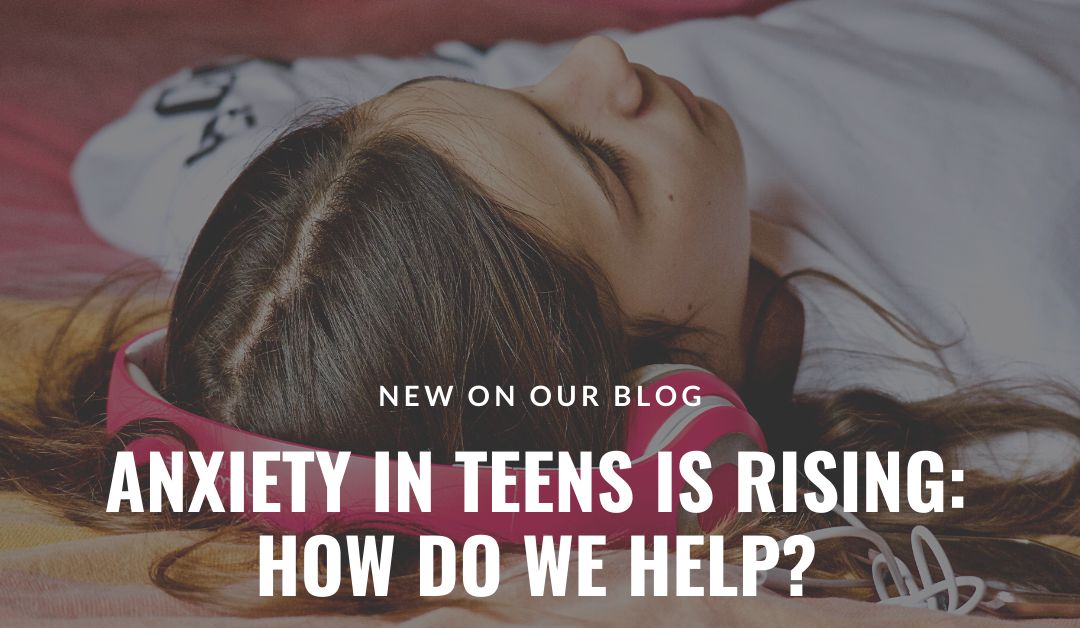
by Sara Hart | Jul 23, 2020 | Blog
The COVID-19 pandemic has led to sudden changes in the social lives and daily routines of teens. With social distancing being enforced and important school events such as prom and graduations being canceled, it’s natural for teens to feel devastated, anxious and disconnected. Nearly one in three teens between ages 13 and 18 will experience an anxiety disorder according to the National Institute of Mental Health. Now more than ever, it’s crucial we encourage our teens to prioritize their mental wellness. Below, we break down steps you can take to help your children maintain positive mental health.
Know the signs of anxiety.
It’s common for teens to feel as if they can’t effectively communicate what they’re experiencing, so these emotions manifest themselves into habits that could show anxiety. For instance, some adolescents feel the need to worry endlessly about routine parts of his or her day. Others also show changes in behavior such as increased irritability. Some may develop negative behaviors such as insomnia, school avoidance or substance abuse. Work with your child to establish healthy coping skills that will ease the stress of the daily struggles he or she faces.
Be mindful of the pressures put on your …
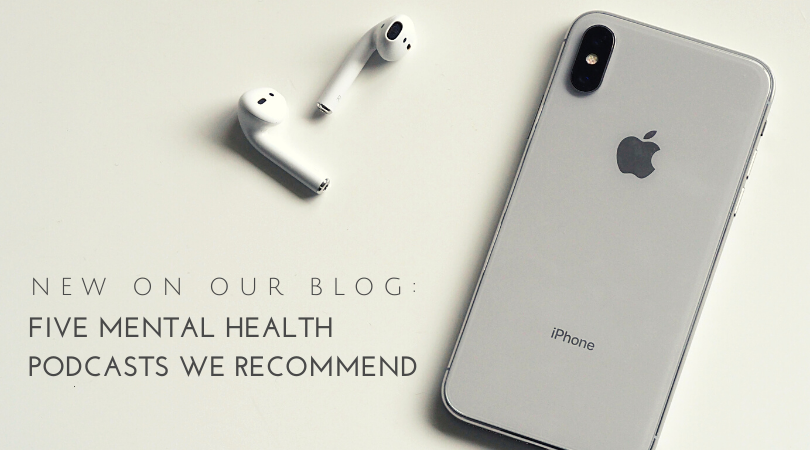
by Sara Hart | Jun 16, 2020 | Blog
Our nation is facing devastating and difficult times, and it’s so important – now more than ever – to maintain your mental health. If you already struggle with anxiety, depression or other mental health challenges, these days of isolation, inequity and uncertainty can be extremely troubling. There are several podcasts that focus on the importance of mental health, and they may inspire and inform you. Below, we’ve listed five podcasts that offer tips on how to combat symptoms and triggers of mental health challenges.
Millennial Mental Health Channel
Mental health is a hot topic for millennials, and this podcast addresses the impact it has on this generation. Hosted by a licensed psychiatrist and therapist, this podcast seeks to give listeners perspective on the world of mental health in bite-size chunks that make it easier to absorb and understand.
Cleaning Up the Mental Mess with Dr. Caroline Leaf
Looking for some quick and easy mental health tips to sprinkle into your busy life? Dr. Caroline Leaf, a cognitive neuroscientist and bestselling author, gives you tools to help take control of your emotional, physical and mental health.
Therapy for Black Girls
Clinical psychologist, Dr. Joy Harden Bradford, started this podcast to …





